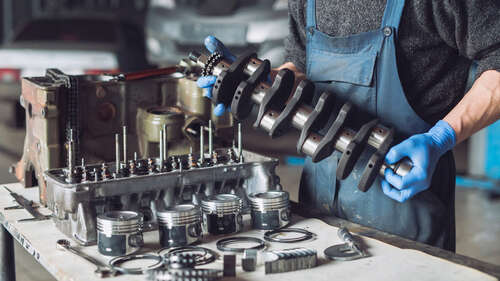
Given the skill and attention to detail involved in remanufacturing an engine, it should go without saying that “remans” tend to cost considerably more than their rebuilt counterparts. You are, after all, essentially putting a brand-new engine in your car. That being said, if price is your primary criterion for deciding between a rebuilt or remanufactured engine, a rebuild is the way to go.
There is a significant drawback with rebuilt engines in that auto shops are not required to use new parts in the process, and used parts can decrease both the performance and durability of your rebuild. Perhaps more problematic in that part of the equation is that mechanics rarely offer a warranty for rebuilds, and if they do offer one, it’s likely to be very limited. The same is not true of remanufactured engines, as companies and manufacturers who undertake the pricey comprehensive process tend to guarantee their work with a multi-year warranty.
As welcome as a multi-year warranty will be, you may never need to use one for a properly remanufactured engine as they’re generally expected to function like new for many years and several thousand miles after installation. Given the facts, car owners willing to make such a sizable investment may want to consider going with a remanufactured engine. As is the case with all automobile work, the durability of even a remanufactured engine depends on a mechanic’s skill. So, if you are looking to invest in a remanufactured engine for your car, choose your mechanic wisely.

